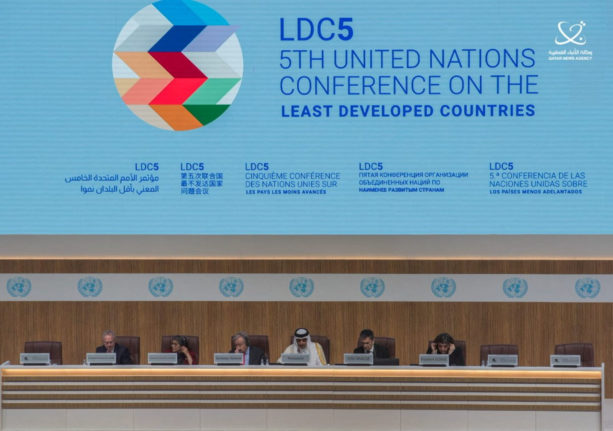Dan Jørgensen, Denmark’s development minister, told the UN Least Developed Countries summit that “trillions” would be needed in coming decades to control
the fallout from rising temperatures.
The impact of a heating planet on the world’s 46 poorest nations has been a key topic at the summit in Doha that ends Thursday.
Least developed countries account for four percent of polluting emissions but suffer more than two thirds of deaths from floods, storms and other climate related disasters, according to Simon Stiell, executive secretary of the UN Framework Convention on Climate Change.
“It is a total embarrassment that the developed world has not yet delivered on the $100 billion that was promised in 2009,” Jørgensen said.
Rich nations promised at a climate conference in Copenhagen in 2009 that the sum would be given annually by 2020 but have so far only reached about $83
billion.
Denmark is one of a handful of Scandinavian-dominated countries that have passed a UN target to give 0.7 percent of gross national income in foreign aid.
Some developed nations have cut aid budgets because of the coronavirus pandemic while some European countries, including Denmark, have diverted
foreign aid money to support refugees from the Ukraine war and other international crises.
Denmark is “delivering more than our share,” said Jørgensen.
At a global level “we need to step up that financing,” he added, arguing that “we need trillions, so 100 billion really should not be a problem”.
France’s minister of state for development Chrysoula Zacharopoulou said that her country wanted to step up negotiations on aid financing at a summit
in Paris on June 22nd-23rd.
Stiell said that the COP28 climate conference to be held in the United Arab Emirates this year would be key for setting “milestones” and “targets” for
future years.
He said his office was ready to help all LDC countries set up national action plans on climate change before the conference in November.
READ ALSO: Denmark at ‘significant risk’ of missing 2030 emissions target: Climate Council



 Please whitelist us to continue reading.
Please whitelist us to continue reading.
Member comments